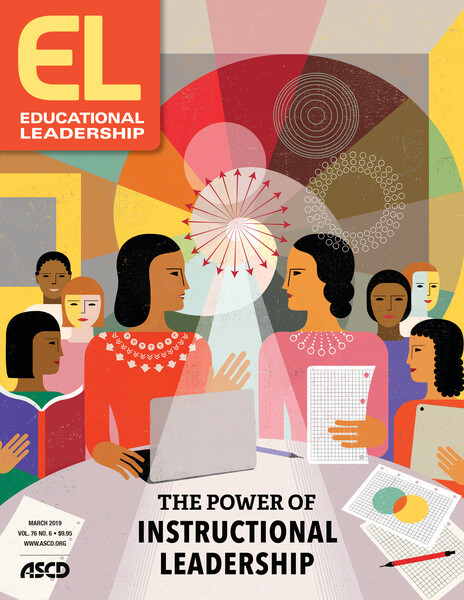Robyn R. Jackson is a former high school teacher and middle school administrator and founder of Mindsteps, a professional development firm that helps educators understand and apply the principles of mastery teaching. She is the best-selling author of nine books, most recently Never Work Harder Than Your Students (ASCD, 2018).
You've said administrators need to have "strategic conversations" with teachers. What makes many talks administrators have with teachers unstrategic?
Often, administrators give teachers a ton of feedback, noting everything a teacher did and didn't do during an observation. The teacher is expected to take all that feedback, digest it, and determine how to improve his or her practice. There are usually no clear next steps, no plan for how to move the teacher's practice forward, and no vision for how that teacher can become a master teacher.
Strategic conversations are based on the belief that any teacher can become a master teacher with the right kind of support and practice. Each conversation is designed to help a teacher take the next step in their personal journey towards mastery. What makes the conversation strategic is that you say, "Here's where you are currently and here's the one thing you need to do next to move your practice forward." So you need to understand exactly where a teacher is on her journey and have a plan for how to help her take the next step.
If you give a truly struggling teacher a litany of feedback, one of three things will happen: the teacher will try to fix everything and end up frustrated and discouraged; the teacher will pick what to work on and attempt random improvements that will inevitably make things worse; or the teacher will become so overwhelmed by your feedback that she or he will give up. If instead, you take time to determine the root cause of a teacher's difficulty and help him or her work on that first, you can address the fundamental reason the teacher is struggling (instead of swatting at various symptoms) and help that teacher make significant progress quickly.
Besides skill, you say a masterful teacher needs to have high will—the determination to ensure that all students learn. Can an instructional leader boost a teacher's will?
First, let's acknowledge that how we coach a teacher or offer feedback affects their "will," whether we're being deliberate about it or not. I'm urging leaders to be more thoughtful about this.
Second, your goal is not so much to heighten a person's will as to tap into what already motivates them. All human beings are motivated by four "will drivers"—mastery, purpose, autonomy, or connection. All of us have a dominant will driver that governs how we're motivated. So the first step is to understand your own will driver, because typically we try to motivate others in the way that we're motivated ourselves. Once you recognize that the ways you're trying to motivate others are really about your own dominant will driver, the next step is to step outside of that and try to understand what the teacher's will driver is. Once you understand the teacher's will driver, you simply feed that will driver and connect it to the work they're doing on behalf of students. The more you feed it, the more motivated they become.
You've stated that many masterful teachers defy our image of what a great teacher looks like in terms of interaction style, room setup, etc. Might leaders need to set aside conventional wisdom about "best practices" as they observe teachers?
When we go into a classroom with a preconceived notion of what instruction should look like, we often miss really fantastic teaching going on. It's not about the practices as much as it's about how those practices help students learn. I've seen teachers do everything "right" and students are still disengaged or confused. Focus on the students: What are they doing? How are they learning?
We do teachers a huge disservice by emphasizing "best practices" as the goal. We go into classrooms with checklists, and teachers feel they have to conform to that checklist. They're so focused on making sure they have enough "best practices" in their lesson that their teaching becomes rote and robotic rather than responsive to students' needs. The goal is always student learning—not whether the teacher wrote the objective on the board or gave students three seconds of wait time before calling on them. Best practices have their place—teaching is a science and an art—but we have to be careful not to make the practices the goal.
What was the most helpful instance of feedback you received as a middle school administrator?
I got some of my best feedback from students. Each month, I invited 12 random students to have lunch with me and tell me how I was doing. They were brutally honest. Sometimes they would tell me that I was being too hard on them. They pointed out how some of our rules and policies were actually undermining the goals we had for students. And (thankfully), they also told me what I was doing right.
Those "focus groups" were some of the most valuable feedback sessions of my career because at the end of the day, we do what we do to serve students.
Editor's note: This interview has been edited for space.





